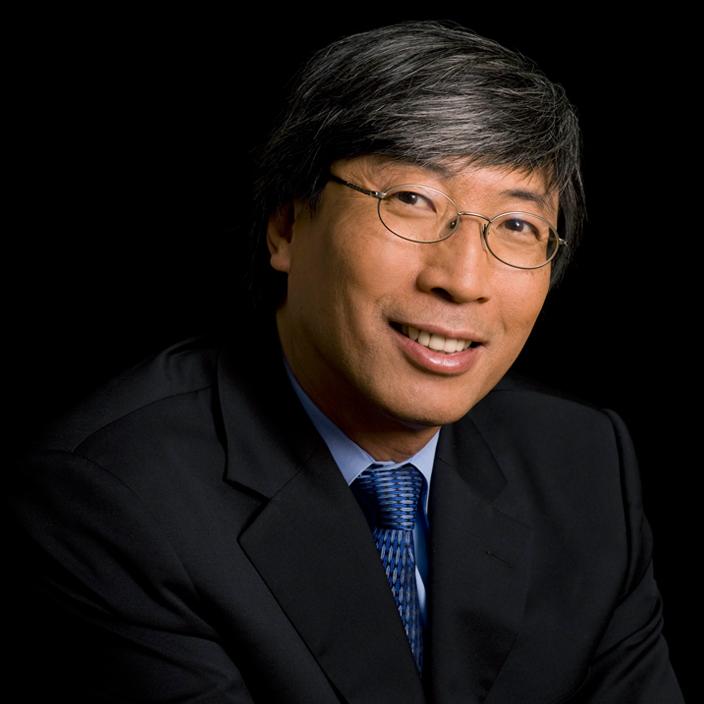
Physician, surgeon, scientist, entrepreneur, and philanthropist, Patrick Soon-Shiong brings big ideas and out-of-the-box thinking to address his life-long quest to overcome life-threatening diseases afflicting mankind. Soon-Shiong has developed multiple medical and scientific firsts in the fields of diabetes and cancer: the first encapsulated islet cell transplant in man, the first pig to man insulin cell transplant, and the world's first human protein nanoparticle approved for breast, lung, and pancreatic cancer. Now, he is using his unique combination of talents to help usher in a new and revolutionary approach to fighting cancer and other deadly diseases—or as he describes it, taking medicine "from the oil lamp to electricity."
Born and raised in South Africa, Soon-Shiong became interested in medicine and science at an early age. He earned his medical degree in Johannesburg at age 23 graduating near the top of his class and continued his studies in Canada at the University of British Columbia and later in the U.S. at the University of California, Los Angeles (UCLA). At UCLA, he first made his mark as a surgeon, performing California's first full pancreas transplant in 1987, as well as the first transplants of encapsulated human islet cells and the transplant of pig islet cells in diabetic patients.
In the early 1990s he pursued the science of stem cell and nanotechnology at NASA, performing experiments as part of the Shuttle program and, in 1991, he founded a biotechnology firm to develop a novel nanoparticle anti-cancer drug with the concept of "using the tumor’s biology against itself". In 2005, his efforts resulted in Abraxane, the first nanoparticle cancer drug to be approved by the FDA. Abraxane was first approved for metastatic breast cancer, doubling the response rate in metastatic cancer when compared to Taxol. Abraxane was soon after approved for lung and pancreatic cancers, and is the only drug of its kind to be approved in first line therapies across this broad spectrum of tumors in the U.S. and EU. Soon-Shiong has established highly successful, global medical technology companies, including American Pharmaceutical Partners, responsible for the nation’s safe supply of the blood thinning agent Heparin, and Abraxis Bioscience which were acquired by Fresnius in 2008 and Celgene in 2010 respectively for a combined value exceeding $9 billion.
In 2011, Soon-Shiong founded NantWorks, an ecosystem of companies formed to create a transformative global health information and next-generation pharmaceutical development network. NantWorks is dedicated to bringing about what Soon-Shiong considers the next scientific revolution: addressing diseases such as cancer and infectious diseases that threaten humanity by integrating nanotechnology, cloud computing and supercomputers, biotechnology, bioinformatics, and other disciplines into an entirely new paradigm for health care, education, science, and justice.
Such ambitious goals require great resources, and Soon-Shiong has not hesitated to dedicate much of his personal wealth to these causes. His private-sector, for-profit "Bell Labs" approach to medicine's greatest challenges has remained sharply focused. He is determined and convinced that his strategies for conquering cancer and other diseases are more efficient and effective than those of academic institutions and government agencies. Through NantWorks and his various other enterprises, he hopes to make personalized genomic data for a specific patient's cancer instantly available to physicians all over the world, so that precision treatment can be quickly and individually tailored.
Soon-Shiong's many awards have recognized both his achievements in medicine and in business. He was honored as the Schering Scholar of the American College of Surgeons and has received the Association for Academic Surgery Award for Research, the Royal College Physicians and Surgeons Research Award, and the International J.W. Hyatt Award for Service to Mankind, among other honors. He was also named Business Person of the Year by the Los Angeles Business Journal in 2010.
Vice President Joe Biden's new "Cancer Moonshot" initiative was inspired both by the loss of his son to cancer and a White House meeting with Dr. Soon-Shiong. At the meeting, Soon-Shiong explained to Biden his ideas for a "Moonshot" approach to developing a cancer vaccine that uses the body's own immune system to fight the disease along with a genetically individualized treatment. The new White House effort and Soon-Shiong's mission and goal are complementary, sharing many of the same scientific concepts and strategies. This double-pronged attack on cancer signals a renewed determination to actively fight the ravages of this seemingly relentless disease.
The "Moonshot" program for overcoming cancer is revolutionary and an attempt to make a quantum leap in cancer treatment. His approach is to harness the body's own immune system to both treat and prevent the recurrence of cancer, an ambitious approach of N of 1 tailored approach to cancer. Yet, Dr. Soon-Shiong believes with cooperation of the pharmaceutical and biotechnology industries, the medical and scientific communities, academia, payers, and government agencies, the program’s ambitious goals are well within reach, especially given the recent and dramatic advances in genomic sequencing, proteomics, big data analytics, and immunotherapy drug development.
Soon-Shiong has dedicated his research, various companies and personal fortune to redefining the ways in which we diagnose, develop therapies and treat cancer, and he has created and fostered the biomedical technologies and scientific and business infrastructure that could make that possible.
In 2015, Soon-Shiong returned to UCLA as a professor, continuing his research and teaching work, while expanding along with his wife, Michele, his philanthropic pursuits. These efforts include the establishment of the Chan Soon-Shiong Family Foundation and Chan Soon-Shiong Institute for Advanced Health. The Chan Soon-Shiong Family Foundation concentrates its philanthropic efforts toward medical technology projects and improving access to medical services in underserved populations, and has to date pledged more than $1 billion to these causes.
Information as of March 2016

